After Murders in Matamoros, the Gulf Cartel Spins an Apology
Narco-messages are fairly common, and just as often, not sincere.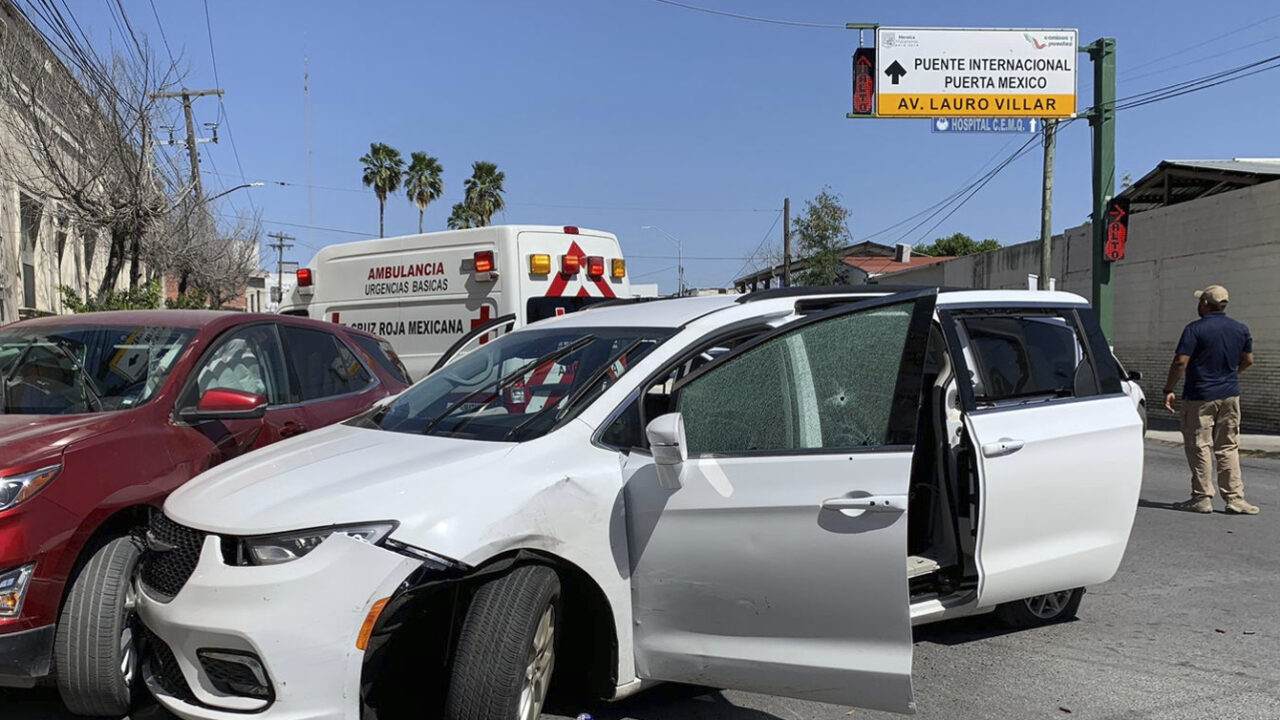 Mexican security forces stands next to a white minivan with North Carolina plates and several bullet holes, at the crime scene where gunmen kidnapped four U.S. citizens. Photo: AP.
Mexican security forces stands next to a white minivan with North Carolina plates and several bullet holes, at the crime scene where gunmen kidnapped four U.S. citizens. Photo: AP.
This article first appeared in NACLA.
On Friday, March 3, four U.S. citizens were abducted after alleged cartel gunmen shot up their car in Matamoros, a border city in Tamaulipas, Mexico. The victims were visiting Matamoros for a plastic surgery appointment. Four days later, they were located by Mexican authorities: two were alive and quickly returned to the United States; the other two had been murdered. A local woman was also killed during the shooting.
The arbitrary attack on U.S. citizens drew media attention from around the world, as well as strong words from U.S. politicians. Some conservative officials and pundits called for U.S. military operations to combat the cartels. Mexican President Andrés Manual López Obrador reacted angrily to this suggested violation of Mexican sovereignty. Others pointed out the sad irony that abducted U.S. citizens were so quickly located while over 100,000 local people have disappeared since the beginning of the war on narcotrafficking in Mexico in 2006.
This story took a surprising twist on the morning of Thursday, March 9, when five men were found handcuffed and prone by a truck in Matamoros. A scrawled note at the scene, signed by the “Scorpion Group” of the Gulf Cartel, declared: “We have decided to turn over those involved and directly responsible for the events, who at all times acted under their own initiative and indiscipline, and against the rules under which the Gulf Cartel have always operated, respecting the life and integrity of the innocents.”
Public notes signed by criminal groups are a relatively common phenomenon in Mexico.
Speculation circulated online about whether this was an authentic message, whether it could be a forgery by the police, and whether it might signal some kind of shift on the part of organized crime in Mexico.
Public notes signed by criminal groups are a relatively common phenomenon in Mexico. Commonly known as narcomensajes, or narco-messages, these texts vary in length and sophistication, but nonetheless follow clear patterns. I’ve collected data on thousands of narco-messages since they became a common practice in the years after President Felipe Calderón declared war on narcotrafficking nearly two decades ago.
Narco-messages very often talk about acts of violence, but rarely offer apologies. Many messages claim responsibility for, or explain the motive behind, acts of violence. Such messages are usually left at the crime scene, often beside a murdered victim. A smaller but still sizable number of messages deny responsibility for acts of violence, and sometimes accuse other state or criminal actors of being the true perpetrators. For example, after a fatal grenade attack on the public in Morelia in 2008, both the Zetas and the Familia Michoacana denied responsibility for the attack and blamed the other group for targeting innocent people. Apology messages are rarer, but certainly do occur. Members of the Sinaloa Cartel and the Jalisco Cartel have both, at various times, apologized for violently blockading major cities to disrupt police or military operations against their leaders.
That apologies are relatively rare does not mean that we should assume this one is sincere, or that it represents a significant shift. Like other advertising or propaganda, narco-messages don’t disclose the truth. They can be better understood as projecting a vision of what the authors want the public to see. Messages are about shaping public discourse and perspective. Rather than a concession on the part of the Gulf Cartel, the apology message should be read as an attempt to represent the cartel in a favorable light. Interpretations that take a cartel apology at face value risk buying into the spin of its authors, rather than interrogating how the authors use this spin to reassert control of the public narrative.
This projection extends even to the name signed on the message. If we take the message at face value, it sounds like the Gulf Cartel is apologizing for this violence. But the Gulf Cartel is more of a brand shared—and sometimes contested—by various factions of the once centralized organization that controlled substantial territory in eastern, central, and southern Mexico. In using this name, the authors of the message inflate their authority.
Regardless of how closely involved in the violence they were, these men are fall guys.
We should exercise similar wariness about the claim that the five handcuffed men are the perpetrators of the violence. Whether or not these men are perpetrators, the neat display of the accused implies that they are the only perpetrators, and that they can be neatly excised from the criminal group as an undisciplined minority that ought to face justice. This too is an idealized projection of the Gulf Cartel as an orderly, principled organization who will not tolerate arbitrary violence.
Regardless of how closely involved in the violence they were, these men are fall guys. Offering them up absolves the cartel of some blame. It also offers a convenient show of justice for the police and local government. The men were charged the day after being found. Their guilt is largely assumed, and there are likely to be few complaints about the rapid—possibly summary—dispatch of justice against men accused by their own of the crime. Indeed, probably the most surprising detail of the apology message is that the men were delivered alive. When cartels publicly discipline a member, they rarely leave them alive to talk about it later.
Less than a week before the abduction in Matamoros, another episode of mass violence occurred in Nuevo Laredo, also a border city in Tamaulipas. In the early hours of Sunday morning, soldiers riding in several vehicles overtook a pickup that had collided with a parked car. The soldiers sprayed the pickup with bullets, killing five young men and wounding a sixth who was riding inside.
The soldiers claimed that they opened fire after hearing gun shots, but the single survivor stated that the soldiers first rammed the pickup, then opened fire after it crashed. The survivor claimed that the soldiers delayed medical treatment to some of the injured who were at the time still alive, and that he was forced to affirm the soldiers’ version of events on camera.
The massacre received substantial coverage in Mexico, but has elicited little outcry from the United States. This is despite the fact that the young man who owned the pickup, and who died in the attack, was a U.S. citizen. In both attacks, there was little clear motive for the violence, beyond a vague sense that unknown people in the vehicle might potentially be threats or enemies, and a sure sense that there was little risk of consequences for the violence that ensued.
The military’s response to the massacre follows a similar pattern to the apology message attributed to the Gulf Cartel. Four soldiers were detained in response to the violence and charged with insubordination on the grounds that they did not have authorization to open fire. This absolves leadership of any responsibility, leaving a discreet group of men as supposedly the only perpetrators. Both the cartel and the military render the violence a matter of indiscipline—just a few bad apples—while burnishing the reputation of the organization for quickly pursuing justice.
Turning over low-level figures is a mark of impunity rather than real justice. The fall guys will face charges, their guilt assumed but also contained. A note of apology does not change the fact that this violence has happened before, and that nothing has been done—especially not on the part of the military—to prevent it happening again.
While pundits and officials in the United States double down on calls for military intervention against Mexican cartels, including sponsoring legislation authorizing cross-border military operations, the military massacre in Nuevo Laredo reveals an uncomfortable truth: that civilians suffer the consequences of militarized security policy. The calls for a strong military response ignore the fact that this has been the prevailing policy for almost two decades in Mexico, with the support—under different guises—of whoever is in power on either side of the border. This policy produces a culture of shooting first and asking questions later on all sides of the “conflict,” with the ordinary people trying to get on with their lives trapped in the middle.
Your support is crucial…With an uncertain future and a new administration casting doubt on press freedoms, the danger is clear: The truth is at risk.
Now is the time to give. Your tax-deductible support allows us to dig deeper, delivering fearless investigative reporting and analysis that exposes what’s really happening — without compromise.
Stand with our courageous journalists. Donate today to protect a free press, uphold democracy and unearth untold stories.

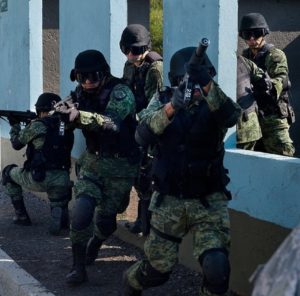
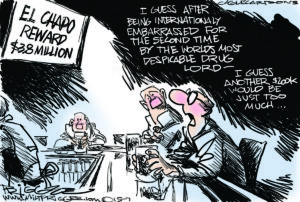
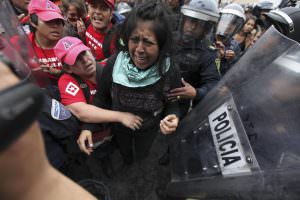

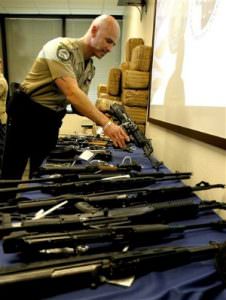



You need to be a supporter to comment.
There are currently no responses to this article.
Be the first to respond.